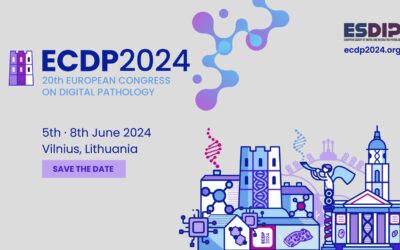Amsterdam/Groningen, the Netherlands – WSK Medical and UMC Groningen (UMCG) announce their joint project receiving funding from the Health-Holland MKB-call. The project is a first of its kind effort to enhance head and neck cancer diagnosis with the use of Artificial Intelligence (AI) solutions assisting in the detection and classification of lesions in the throat and voice box i.e. the head and neck area. The consortium will also investigate if – for the first time with head and neck cancer – Fluorescence-Guided Imaging (FGI) with AI will add additional insights in the detection and classification of head and neck cancers.
Head and Neck Cancer (HNC) is an aggressive cancer type with a low 5-year overall survival rate (34%) in advanced stages. This is due to the often late and difficult diagnosis, as small and early-stage lesions are hard to detect resulting in further progression to more advanced cancer stages. HNC is diagnosed by performance of an endoscopy. Currently, either traditional White Light Endoscopy (WLE) or new Narrow Band Imaging (NBI) is used to analyse the head and neck area to check for malignant tissue. Another highly innovative methodology for detecting HNC is Fluorescence-Guided Imaging (FGI), a form of molecular imaging using near- infrared fluorescent agents to visualize HNC which potentially improves detection.
Zeno AI’s output during an endoscopic examination of the throat. Here it detects a benign lesion.
“I am so proud of this project receiving a well deserved grant to enhance the real-time detection and classification of head and neck cancers using AI. We feel the ENT field and the patients with head and neck cancer deserve innovations like Zeno AI to enhance the clinical workflow and potentially enable a better disease outcome. This recognition by Health-Holland will significantly boost further development and clinical research”, says Marius Wellenstein, CEO and founder of WSK Medical.
“As a head and neck oncologic surgeon and ENT-doctor, I believe this kind of new technology is mandatory to maintain the high level of oncologic care with respect to the evolving numbers of patients. AI will be helpful to increase efficiency of our head and neck oncologic health care system to assure early and specific detection of new malignancies or recurrences after treatment in the throat and on vocal cords. This Health-Holland initiative is in line with the objectives of the Integral Care Agreement (Integraal Zorg Akkoord) and with these AI developments the patient and his/her family will benefit considerably in the near future”, says dr. Plaat from the ENT/Head and Neck Oncology department of UMCG.
This project aims to improve Dutch head and neck oncology care, addressing the current challenge of late HNC detection. Despite the Netherlands’ advanced healthcare system, early-stage HNC could go undetected, resulting in high mortality and severe treatment effects. Developing an AI-tool for real-time HNC detection and classification could significantly reduce diagnosis and treatment times, improving patient outcomes, reduce burden of unnecessary visits and lower overall healthcare costs. Additionally, it promotes the use of advanced light-filtering and fluorescence technologies like NBI and FGI in clinical practice and provides objective support to physicians, potentially reducing their workload and increasing their performance.
More information on the project can be found on the website of Health-Holland.
About WSK Medical
WSK Medical develops Artificial Intelligence software solutions for the detection and classification of cancer. Our aim is to bring you the most advanced Artificial Intelligence technologies to assist Clinicians and Doctors. We do this by working in partnership, to develop sophisticated AI systems. For more information about our AI solutions, please contact us.
About UMC Groningen
The oncologic surgeons of The Department of Otolaryngology / Head and Neck surgery of the University Medical Center Groningen provide care for patients with malignancies of the head and neck area. As members of one of the eight Dutch Head and Neck Oncology Centers, they combine academic patient care in a multidisciplinary team with highly rated scientific research.



